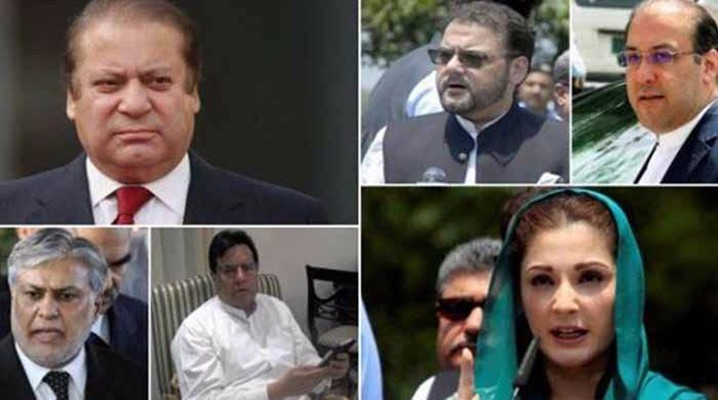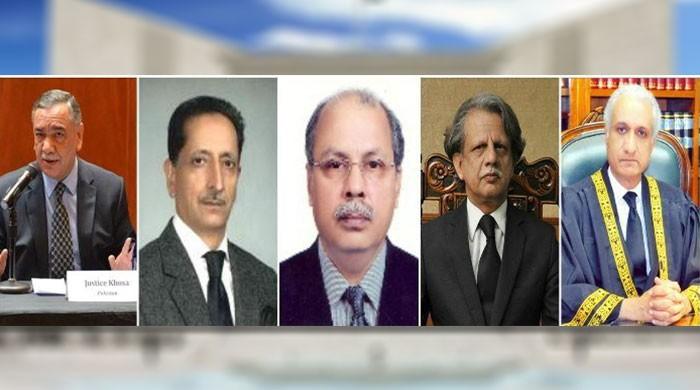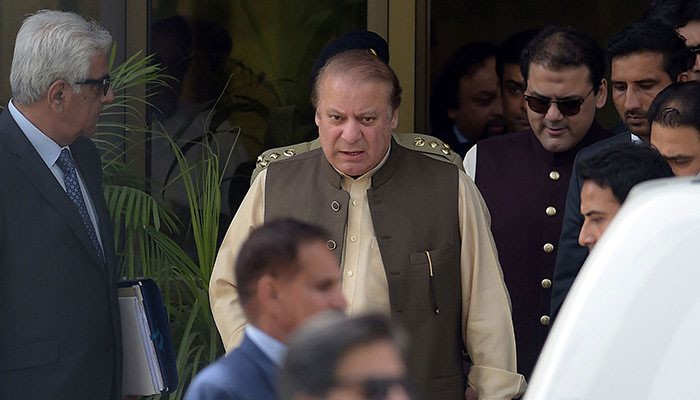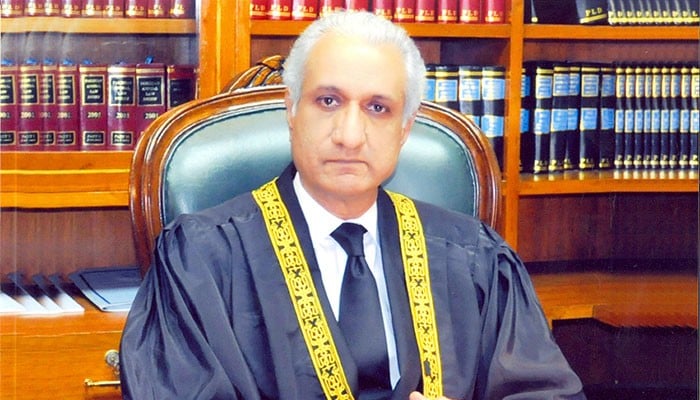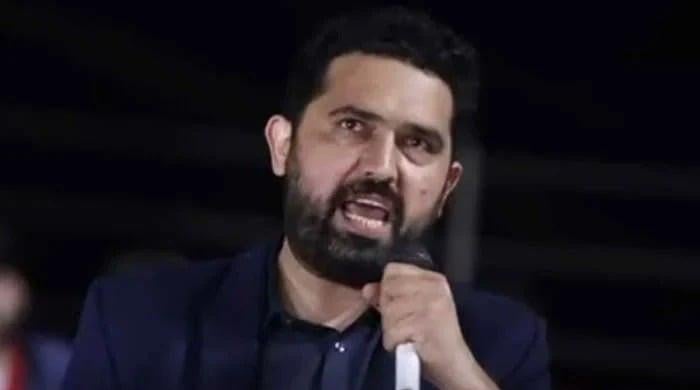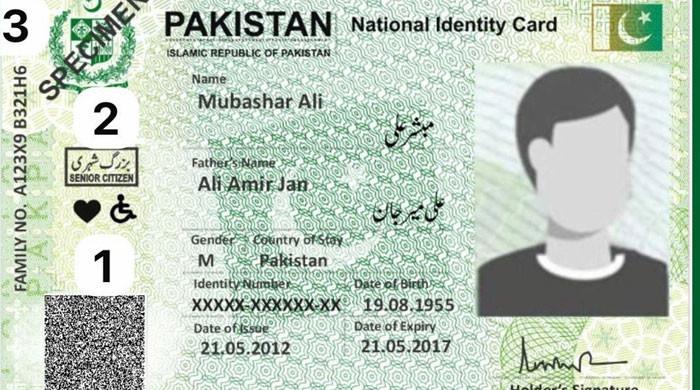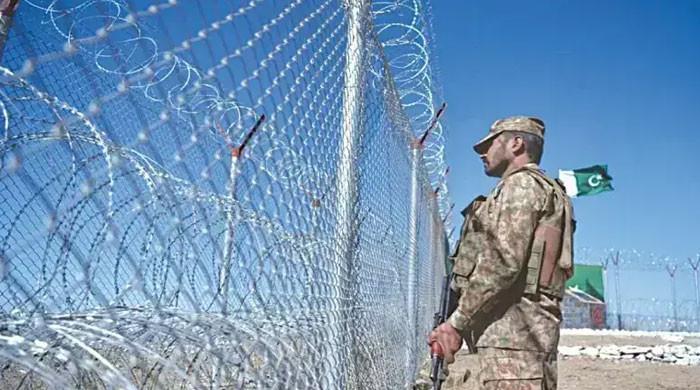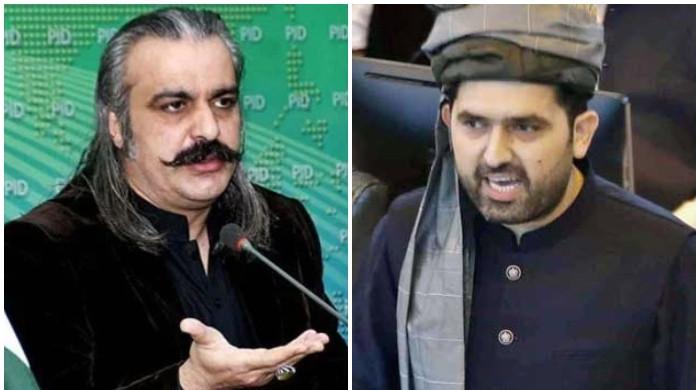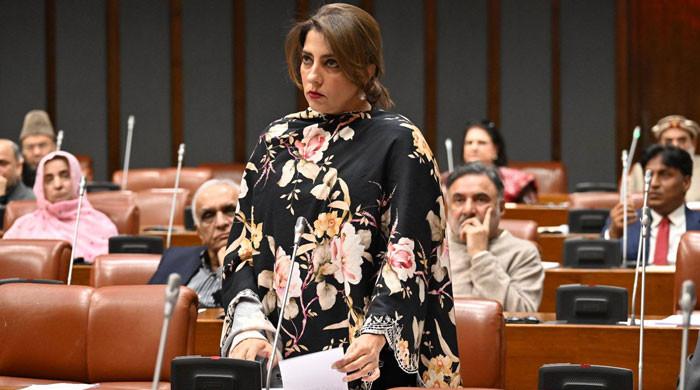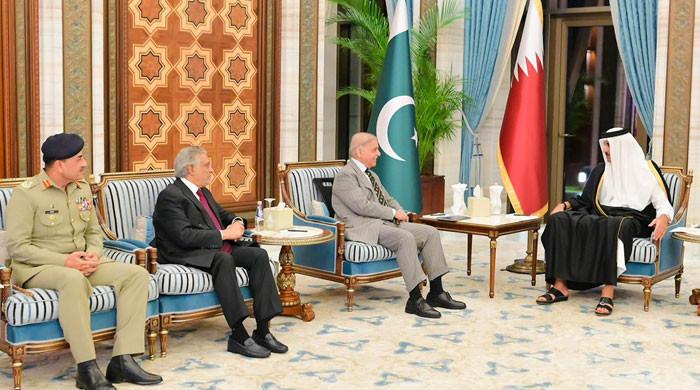Nawaz Sharif tried to fool people, says SC in Panama review order
The detailed verdict on dismissal of Sharif family's review petitions is spread over 23 pages
November 07, 2017
ISLAMABAD: The Supreme Court issued on Tuesday its detailed judgment rejecting the review petitions filed by the Sharif family over the Panama Papers verdict.
On September 15, the apex court had issued a short-order rejecting the review petitions of the Sharif family and Finance Minister Ishaq Dar against the July 28 judgment.
The five-member bench had disqualified Nawaz Sharif as prime minister on July 28 at the conclusion of the Panama Papers case.
In the detailed order, authored by Justice Ejaz Afzal Khan, the apex court held that the ousted prime minister tried to fool the court and people, both inside and outside of Parliament, and never came up before the court with the whole truth
“Nawaz even tried to fool the apex court without realizing, 'You can fool all the people some of the time, and some of the people all the time, but you cannot fool all the people all the time',” it said.
'Court couldn't shut its eyes'
Justifying the dismissal of the review pleas, the verdict ruled that the court could not have shut its eyes when an asset of the petitioner arising out of Iqama (work permit) having surfaced during the investigation of the case and admitted by him to be his in no uncertain terms, was not found to have been disclosed in the election nomination papers.
The court also observed that a much higher level of integrity was expected of the holder of the highest elected office of the country, “but to our dismay and disappointment, the petitioner has not been fair and forthright in answering any of the queries made during the course of hearing.”
It further said since the country’s prime minister was thought to be the ethos personified of the nation and he represented at the national and international level, denying an asset established or defending a trust deed written in 2006 in a font becoming commercial in 2007 was below the dignity and decorum of the office he holds.
Quoting an Urdu couplet expressing a follower’s feelings about his leader, Justice Ejaz said: “Don’t talk about this and that thing, just tell us why the caravan was looted — We have no complaint with the passersby, it is a question of your leadership”.
'Neck-deep in business and politics'
“Nawaz Sharif has been neck deep in business and politics ever since early 80s’ so it is unbelievable that he did not understand the simple principle of accounting that his accrued and accumulated salary of six and a half years was his asset and liability of the company he was an employee of,” says the detailed verdict on the issue of receivables.
The verdict dismissed the argument that when no material had come on the record to show any nexus between Nawaz's son-in-law MNA Capt (retd) Safdar and the Avenfield apartments of the Nawaz family, the direction to the NAB authorities to file a reference against him was not sustainable.
The court ruled that Safdar was the spouse of Maryam Nawaz Sharif who prima facie happened to be the beneficial owner of the Avenfield apartments.
The judges also ruled that the bench not only gave Nawaz a fair chance to vindicate his position before this court, heard him at length for almost two days, but also accepted whatever he stated about the work permit, his employment contract with Capital FZE Jabal Ali, his position as chairman of the company's board and his entitlement to salary which according to him was not withdrawn.
The mere fact that we did not agree with the petitioner when he stated that his unwithdrawn salary is not an asset would not amount to denial of a fair chance to vindicate his position.
It was also observed that no error has been identified in the Panama Papers case which could be reviewed and the accountability court trying Nawaz, his family and Dar is free to make a decision on the basis of nature of evidence, the verdict read.
The trial court has the authority to reject weak evidence, it states further.
"The facts about disqualification of Nawaz Sharif as prime minister were uncontroversial," the apex court observed in its verdict, maintaining that it could not be said that the decision surprised Nawaz.
Tentative observations
The 23-page verdict stated that observations given in the Panama case verdict are tentative. It said the verdict [in Panama case] will not have any effect on the references against the Sharif family, for the accountability court, under the Evidence Act, will itself decide whether the testimonies are true.
Monitoring judge
The apex court, in its verdict, also addressed the appointment of a Supreme Court judge to monitor the corruption trial.
Regarding the appointment of a Supreme Court judge to monitor the accountability court proceedings, the apex court stated, in the verdict, that it has been practising this for quite some time and it is due to the casualness often demonstrated by different institutions.
It was also observed during the hearing [of Panama case] that the National Bank, FBR, NAB and other institutions' behaviour wasn't adequate and the apex court cannot turn a blind eye to these matters. The apex court rejected the argument that the step was in violation of the Article 172 of the Constitution.
It cannot be imagined that the monitoring judge will influence the trial, it stated further.
Extendable timeframe
The directions to finish the trial in six months are not meant for influencing the trial court, but for early completion of the trial, the detailed judgment reads.
Regarding an unexpected delay in the case, the court stated that in case of a delay during the trial, due to some hardships or for any other reason, the timeframe may be extended.
Mehmood Akhtar Naqvi case
In its verdict, the apex court also gave a reference to the Mahmood Akhtar Naqvi case. Petitioner Naqvi had filed a petition in the apex court seeking disqualification of a number of parliamentarians for hiding their dual nationality.
The court had disqualified the parliamentarians under Article 184/3.
At the end of judgment, Justice Asif Saeed Khan Khosa said: “No ground has been taken in these review petitions nor any argument has been advanced at the bar questioning anything observed or concluded by me in my separate opinion recordedin the main case.”
Below is full verdict announced by the Supreme Court:
